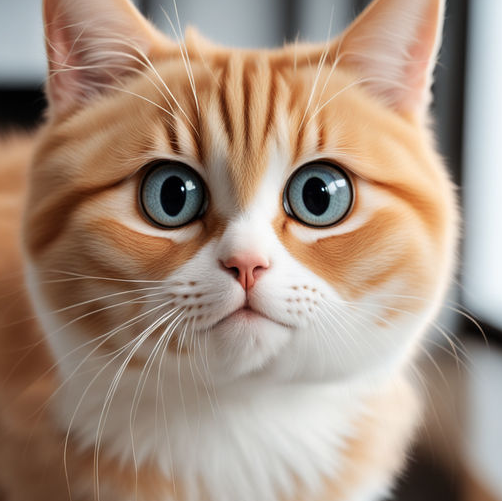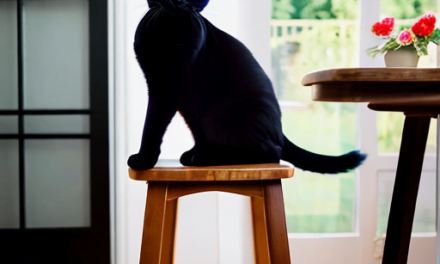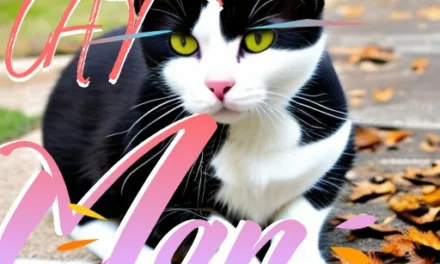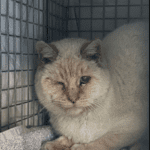 Who would have known that some cats like Almond Milk?
Who would have known that some cats like Almond Milk?
*****It is NOT for kittens******
An Experience with My Cat and Almond Milk
I am not a veterinarian, and the content provided in this post does not constitute veterinary advice. The purpose of sharing my experience with my cat and almond milk and to inform people that most city animals are lactos intolerant, and to recount a personal observation, not to offer professional guidance.
I was recently surprised when my adult cat Sheba took an interest in some almond milk that had splashed on the floor. As many cat owners know, cats are often lactose intolerant and cannot digest dairy well.
In my cat’s case, I have cleared small amounts of almond milk as an occasional treat with my veterinarian. My vet cautioned that each cat is different, and introducing new foods should always be done under a vet’s supervision.
Out of curiosity, I looked into whether almond milk could be an alternative to dairy for some cats. What I found is that the lactose-free nature of almond milk may make it easier to digest for some adult cats compared to cow’s milk. However, sources also noted that almond milk does not contain all the nutrients cats need long-term and should not make up a significant part of their diet.
Importantly, multiple sources stated almond milk should never be given to kittens, who have very sensitive digestive systems. The risks of diarrhea and other harmful effects are too high for kittens.
As one commenter James wisely pointed out: “When digested, almonds break down into benzaldehyde and cyanide. How might this affect something as small as a cat?”
While my cat seems to tolerate small amounts without issue, I realized my post may have unintentionally implied almond milk is safe for all cats or kittens without veterinary approval. That was absolutely not my intent. I should have been more clear that my experience is anecdotal, and not suitable for general advice.
Please learn from my mistake. Never give any new food, including almond milk, to a cat or kitten without express vet approval, and monitor carefully for any reactions. What is safe for one cat may not be safe for another. Thank you again to James for catching my oversight. I appreciate the chance to clarify.
The information suggests almond milk in moderation is likely safe for most cats, but too much could lead to nutritional deficiencies. Relying on it too heavily risks health problems. So care should still be taken. Consulting a vet and monitoring the cat closely when introducing any new food is good advice. Small amounts of almond milk occasionally appear safe for most cats, but too much may not be nutritionally sufficient. Source: https://cats.com/can-cats-drink-almond-milk#:~:text=Almond%20milk%20is%20not%20an,your%20cat%27s%20coat%20and%20skin
Go forth and do good to our fur, feathered and scaled friends.
Edmund
Many common city animals are lactose intolerant, including:
- Cats – Most cats lose the ability to digest lactose after weaning as kittens due to decreasing levels of the enzyme lactase. Milk and dairy products can cause digestive upset in cats.
- Dogs – Some dogs, especially as they get older, can become lactose intolerant. Certain breeds like Chinese Shar Peis are more prone to it. Symptoms like diarrhea and gas can occur if they consume dairy.
- Rodents – Small mammals like rats, mice, hamsters, guinea pigs, and gerbils do not produce lactase and are lactose intolerant. Dairy should be avoided for these pets.
- Reptiles – All reptiles including turtles, snakes, and lizards lack the lactase enzyme and cannot properly digest lactose. Dairy foods can harm their digestive system.
- Birds – Common city birds like pigeons, sparrows and starlings cannot break down lactose and should not be fed dairy products.
I don’t feed my cats milk because it’s not the best for them, so you can imagine my surprise when my finicky Sheba Grinch leapt for some almond milk that splashed.
In moderation it’s OK, but consult your vet. With so many strays around I thought this might be an option for those who rescue them. In a pinch, this might be helpful to know, and less harmful than milk which upsets many cats who are lactose intolerant.
James kindly pointed out the risk of cyanide poisoning of kittens as a concern with giving them almond milk. I was talking about cats, but I think his concern is worth mentioning.
James Wrote:
“When digested, almonds break down into benzaldehyde and cyanide. How might this affect something as small as a cat?”
I responded:
Hi, James, nice to meet you! Please see my amended post and blog post. I was speaking of my experience with my cat, not kittens and referencing sweet almond milk. Again, no almond milk should be given to kittens or any animal without vet approval. Best to clarify, because someone somewhere will likely pick up the ball and run with it to places it wasn’t intended to go. My intention was to explore the use of almond milk in emergency situations as a nourishment option for lactose intolerant cats. And stress the fact that milk should be avoided with most animals. I wanted to highlight the digestive systems of various animals and how they can be affected by dairy products. It’s important to note that while almond milk can be a good alternative to dairy milk for some animals, it should be used in moderation and with the guidance of a veterinarian. Thank you for sharing your insight on this topic! Almond milk is not toxic to cats. However, it’s not recommended to give cats almond milk too often or in large amounts. Almond milk can cause digestive upset, vomiting, and diarrhea. It’s also high in calories and contains added sweeteners, flavorings, and artificial sweeteners, which can be harmful to pets. The compound amygdalin in wild almonds breaks down into cyanide and benzaldehyde when ingested. Benzaldehyde is used in almond flavorings, but it’s toxic in large amounts. One ounce of commercial almond milk contains about 0.25 mg of cyanide. A lethal dose of cyanide is around 100 mg. Almond milk is not recommended for kittens or senior cats. Again, always consult a veterinarian beforehand. Source: https://geniuslitter.com/blogs/cat-nutrition/can-cats-have-almond-milk-the-experts-reveal-all#:~:text=Key%20Takeaways%20%C2%B7%20In%20moderation%2C%20cats%20can,kittens%2C%20senior%20cats%2C%20or%20cats%20with%20chronic https://cats.com/can-cats-eat-almonds#:~:text=Sweet%20almonds%20are%20the%20kind,must%20contact%20your%20veterinarian%20urgently




















